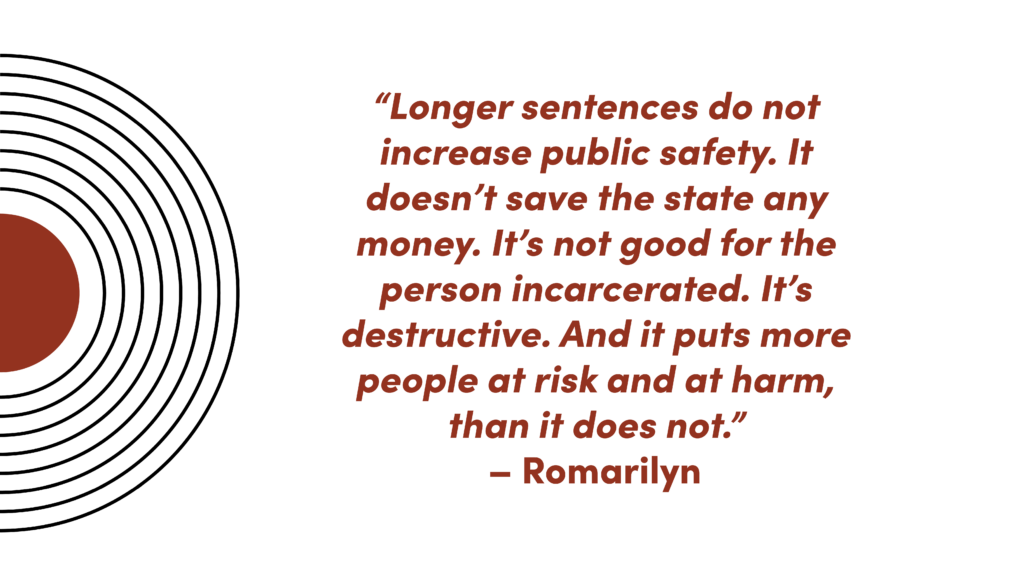Experiences of Long-term Sentences in CA Women’s Prisons - Report
New Title

In a collaborative report between the UCLA Center for the Study of Women/Streisand Center and DropLWOP partner California Coalition of Women Prisoners, "Maximizing Time, Maximizing Punishment" explores the lived experiences of long-term sentences in California Women’s Prisons.
The report is based on the inaugural study of the University of California Sentencing Project (UCSP), and grew out of a demand by people incarcerated at the California Institution for Women (CIW) for research that examines the under-studied conditions and lived ramifications of long-term sentences. In December of 2019, the UCSP launched its first research effort with twenty-two collaborators who had served or faced a long-term sentence in California’s prisons designated for women.
The report highlights five key themes:
- The criminal legal system’s systematic refusal to recognize the circumstances of criminalization as stemming from survival and trauma fuels extreme sentencing.
- Criminal legal procedure produced and exacerbated trauma caused by racialized, gendered, and sexualized violence, undercutting participants’ ability to participate effectively in their own defense.
- The tendency to view sentencing as a discrete judicial event conceals the role of the wider web of political actors and structural forces that shape sentencing outcomes.
- Prison authorities, prison guards, and Board of Parole Hearings (BPH) commissioners play significant roles in extending the duration and punitive effects of sentencing.
- The harmful impacts of long-term prison sentences are embodied; relational; life-long; and multigenerational.
"Why has our society decided that a 25-year gun enhancement is reasonable to add onto a 15-to-life sentence for second degree murder, when the woman was only trying to protect herself from abuse? Why don’t we talk about the California parole board as a sentencing authority in its own right, and one with no oversight? We have to think of public safety in much broader terms and take into consideration things like emotional safety, economic safety, and safety from state violence." - Jane Dorotik, who served 22 years in prison for the murder of her husband before her wrongful conviction was overturned in 2020, and all charges dropped in 2022.
You can read and download the report "Maximizing Time, Maximizing Punishment."










